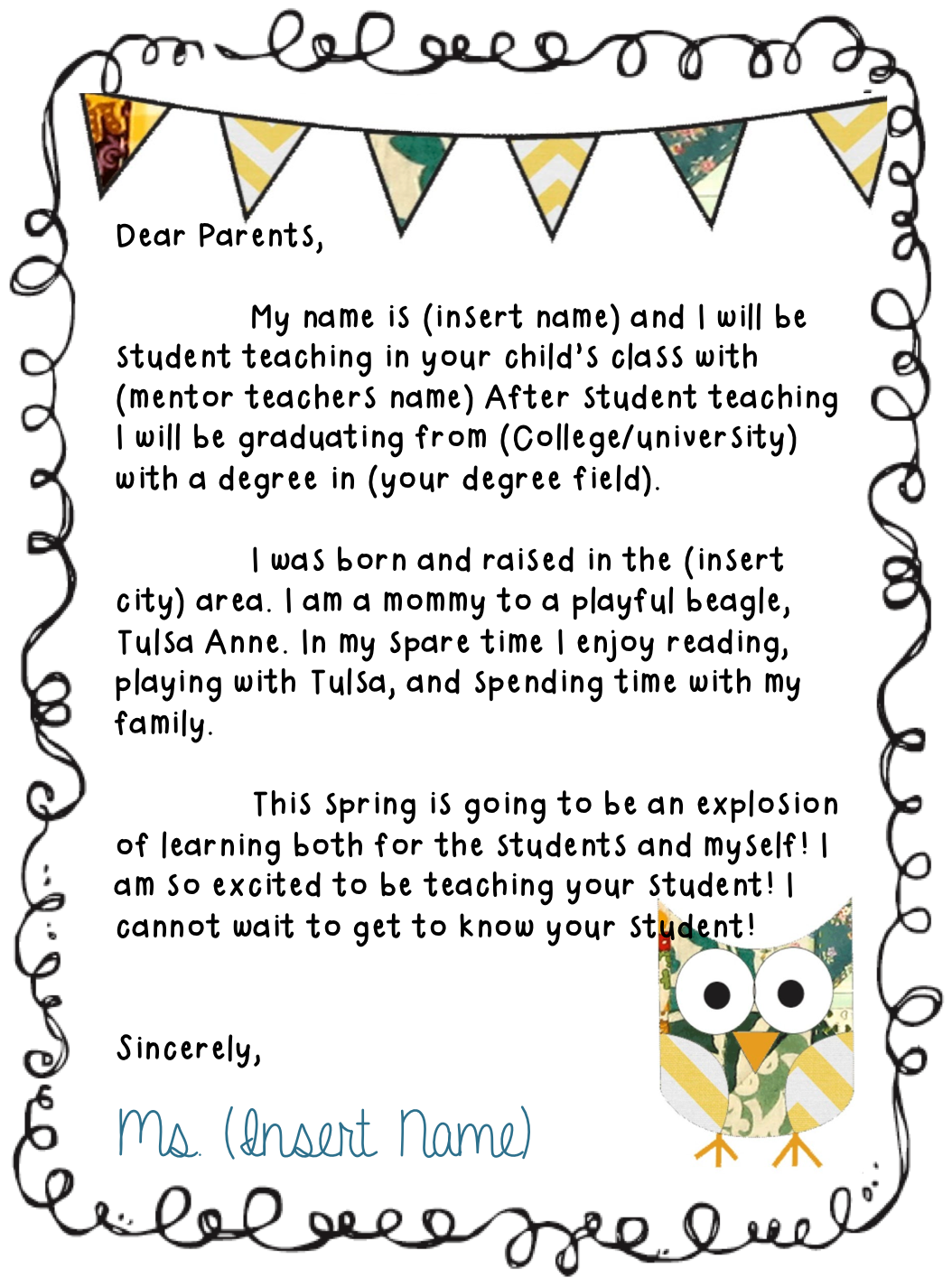Parent Write A Letter To Teacher: A Guide For Effective Communication
In today's educational landscape, effective communication between parents and teachers is essential for a child's success. A parent writing a letter to a teacher can foster a positive relationship, address concerns, and enhance the overall learning experience. This article will provide insights into the importance of this communication, tips for writing an impactful letter, and examples to guide parents in crafting their messages.
As parents, being involved in your child’s education is crucial. One effective way to engage with teachers is through writing letters. A well-written letter can open the lines of communication, allowing for better understanding and collaboration. Whether you are expressing concerns, sharing important information, or simply introducing yourself, knowing how to write an effective letter is vital.
This article will explore the various aspects of writing a letter to a teacher, including when to write, what to include, and how to ensure your message is received positively. By following these guidelines, you can make a significant impact on your child’s educational journey.
Table of Contents
- Importance of Writing a Letter to Teacher
- When to Write a Letter
- What to Include in Your Letter
- Tips for Writing an Effective Letter
- Examples of Parent Letters to Teachers
- Follow Up After Sending the Letter
- Common Mistakes to Avoid
- Conclusion
Importance of Writing a Letter to Teacher
Writing a letter to a teacher serves multiple purposes:
- Establishing Communication: A letter can serve as a foundation for ongoing dialogue between parents and teachers.
- Expressing Support: It shows that you are invested in your child’s education and value the teacher’s role.
- Addressing Concerns: If there are issues affecting your child, a letter provides a formal way to discuss them.
- Sharing Information: Parents can use letters to share insights about their child’s strengths and weaknesses.
When to Write a Letter
There are several instances when a parent might consider writing a letter to a teacher:
- At the beginning of the school year to introduce yourself and your child.
- When your child is experiencing academic or social difficulties.
- To provide feedback on a school event or project.
- To thank the teacher for their efforts and support.
What to Include in Your Letter
When writing a letter to a teacher, it’s important to include specific elements:
- Your Contact Information: Include your name, phone number, and email address.
- Your Child's Information: Mention your child's name, grade, and any relevant details about them.
- Purpose of the Letter: Clearly state the reason for writing the letter.
- Positive Tone: Maintain a respectful and positive tone throughout the letter.
Tips for Writing an Effective Letter
Here are some tips to ensure your letter is well-received:
- Keep it concise and to the point.
- Avoid using jargon or overly complex language.
- Be respectful and polite, even if addressing concerns.
- Proofread your letter for spelling and grammatical errors.
- Consider the timing of your letter; sending it at the right moment can make a difference.
Examples of Parent Letters to Teachers
Here are a few examples of letters that parents can write to teachers:
Example 1: Introduction Letter
Dear [Teacher's Name],
I hope this letter finds you well. My name is [Your Name], and I am the parent of [Your Child's Name], who is in your [Grade/Class Name]. I wanted to take a moment to introduce myself and express my support for you and your teaching efforts this year. I look forward to working together to ensure a successful year for my child.
Sincerely,
[Your Name]
Example 2: Addressing Concerns
Dear [Teacher's Name],
I am writing to discuss some concerns regarding [Your Child's Name] and their progress in class. I have noticed that they seem to struggle with [specific subject or issue]. I would appreciate any insights you could provide and any suggestions for how we can support them at home.
Thank you for your attention to this matter.
Sincerely,
[Your Name]
Follow Up After Sending the Letter
After sending your letter, consider following up:
- Wait a week or two and then check in with the teacher to see if they received your letter.
- Ask if they have any feedback or if they would like to meet in person to discuss further.
Common Mistakes to Avoid
Here are some common pitfalls to avoid when writing a letter to a teacher:
- Being overly critical or negative.
- Writing a letter that is too long or wordy.
- Failing to proofread for errors before sending.
- Not including your contact information.
Conclusion
In conclusion, writing a letter to a teacher is a valuable tool for parents to enhance communication and support their child's education. By following the guidelines outlined in this article, you can craft an effective message that fosters a positive relationship with your child's teacher. Don't hesitate to reach out and share your thoughts, concerns, or appreciation. Your involvement can make a significant difference in your child's academic journey.
We encourage you to leave a comment below, share this article with other parents, and explore more resources on effective communication in education. Together, we can create a supportive environment for our children.
Article Recommendations
- Emily Compagno
- Yumi Eto
- Benicio Del Toro Wife
- Dan Bongino Wife Accident
- Aliyah Marie Leaks
- Is Mark Levin Sick
- Wentworth Miller Wife
- Joe Scarborough Illness
- Kaitlan Collins
- Dafne Keen Nude


